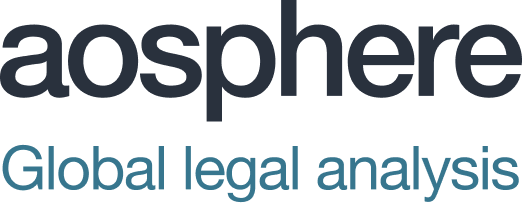Key global data privacy developments you might have missed (but Rulefinder Data Privacy hasn't).
Mexico - New data protection law enacted
An updated Federal Law for the Protection of Personal Data held by Private Parties (the New DP Law) was published in Mexico’s Official Gazette on 20 March 2025, taking effect the following day. It replaces the existing law of the same name. Updated regulations to complement the New DP Law are expected to be enacted in due course.
Nigeria - NDPC issues GAID 2025
On 20 March 2025, the Nigeria Data Protection Commission adopted the Nigeria Data Protection Act (NDP Act) 2023 General Application and Implementation Directive (GAID) 2025. The GAID further implements the NDP Act, addressing key topics and repealing the Nigeria Data Protection Regulation 2019. Full implementation of the GAID is set for September 2025, and the fee-related provisions will take effect in January 2026.
The GAID covers a broad array of topics including DPOs, data protection principles, lawful bases, transparency, DPIAs, security, data breach handling, deployment of processing software, data processing agreements, individual rights, emerging technologies, compliance audits, general compliance measures, and international transfers. It also has provisions dealing with the designation and registration requirements for data controllers and processors of major importance.
Data Privacy: Stay ahead of the curveAs AI accelerates, so do the compliance challenges. In this recent article, we explore the growing intersection between AI and data privacy, covering key compliance risks, from DPIAs to automated decision-making, and what they mean for AI governance. Our new AI Regulation & Governance module keeps you up to speed with:
Exclusively available to Rulefinder Data Privacy subscribers. Get in touch for a demo or more details. |
EU - EDPB report on risks and mitigations for LLMs
The European Data Protection Board has published a report on AI Privacy Risks & Mitigations Large Language Models (LLMs). The report provides practical guidance and tools for developers and users of LLM based systems to manage the data privacy risks associated with the use of these technologies.
UK - New guidance on anonymisation and pseudonymisation
The UK ICO has published the final version of its non-binding guidance on anonymisation and pseudonymisation, which sits alongside the ICO's data sharing code of practice and positions data anonymisation (followed by the sharing of non-personal information) as a privacy-friendly alternative to personal data sharing. The guidance is comprehensive and goes into matters such as how effective anonymisation can be ensured and what kind of accountability and governance measures should be implemented in an organisation relying on anonymisation.
Finland - Cybersecurity Act to implement NIS 2 Directive
The Finnish Parliament has passed the Government’s proposal for a national Cybersecurity Act to implement the EU NIS 2 Directive, with some obligations effective from 8 April 2025. Please note that the Cybersecurity Act does not apply to any entity to which DORA applies. The Finnish Transport and Communications Agency (Traficom) will be the competent supervisory authority for cybersecurity matters, liaising with the sectoral authorities as required, and it also has new supervisory duties.
The Cybersecurity Act is available here (in Finnish)
Sanctions. We're keeping count.
115. That's the number of regulatory sanctions around the world that Rulefinder Data Privacy has already tracked in 2025. It amounts to over 275,510,000 US dollars in penalties and numerous other reprimands and corrective actions.
Not seen our Enforcement Tracker yet? Ask us for a demo.
China - CAC publishes Q&A on security assessments for cross-border transfer
The Cyberspace Administration of China (CAC) has published Questions and Answers on managing data security assessments for cross-border transfer. The Q&A is intended to improve knowledge and implementation of management policies on outbound data security and to assist organisations processing personal data to undertake transfers efficiently and in compliance with applicable regulations.
South Korea - revised guidelines on privacy notices
The South Korean data protection authority, the PIPC, has issued an updated version of its guidelines on drafting "Privacy Policies" (often referred to as "privacy notices" in other jurisdictions), which organisations are required to publish. The updated guidelines seek to create greater transparency about data processing and enhance the rights of individuals whose personal information is processed. At the same time, they try to reduce the burden on organisations.
The guidelines: (i) suggest less detail and granularity are required when setting out data retention periods; (ii) include some new requirements in terms of where and how often the policies should be displayed; and (iii) contain clarifications on individuals' rights to refuse processing in the context of behavioural data collection and profiling.
United States - Arkansas - Children's online privacy act enacted
On 21 April 2025, the Governor of Arkansas signed into law HB 1717 to create the Arkansas Children and Teens’ Online Privacy Protection Act, which will take full effect on 1 July 2026. The Act is similar to the federal Children and Teens’ Online Privacy Protection Act (reintroduced as a bill in March 2025 and known as COPPA 2.0) and creates protections for children aged between 13 and 16.
The Act applies to operators of websites, online services, online applications, or mobile applications either directed at Arkansas residents that are children (12 years or under) or teens (aged 13 to 16), or with actual knowledge that they are collecting personal information from those children or teens. It contains provisions covering transparency and consent, data minimisation, and rights that must be facilitated.
Netherlands - AP monitoring cookie banners
The Dutch data protection authority (the AP) has highlighted that since 2024 it has significantly increased its proactive checks on website cookie banners and whether organisations are asking for permission to place tracking cookies or similar technologies in a fair and lawful manner. The AP refers to five investigations of Dutch websites in 2024, which all resulted in the organisations adjusting their cookie banners to comply with the law. Unlawful practices included: (i) the button to refuse cookies was hidden, (ii) the consent for placing cookies was pre-checked, and (iii) cookies were placed before the website visitor had given permission, or after refusal.
The AP confirms that organisations that do not comply with the rules on cookies will generally receive a warning and the opportunity to adjust their cookie banner. However, in the event of serious violations or if an organisation refuses to adjust the cookie banner, there is a good chance that the AP will take enforcement action with fines or other sanctions.
Want to find out more?
Rulefinder Data Privacy subscribers hear about these and other privacy law developments as soon as we cover them.





